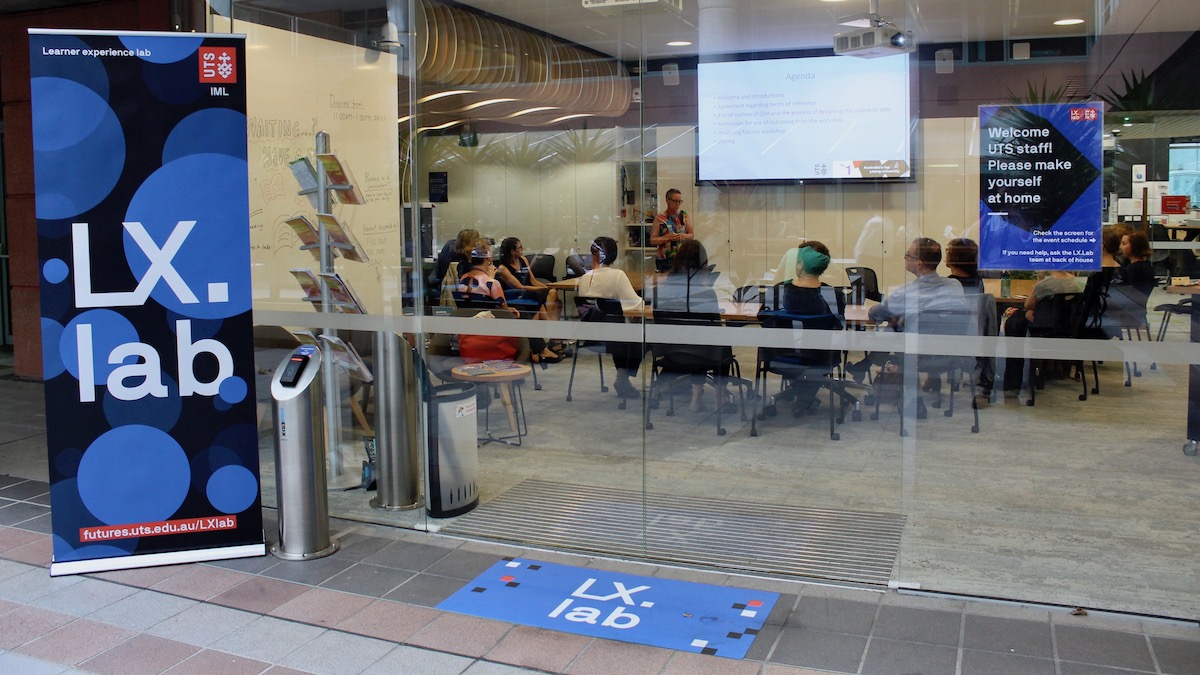These questions have been occupying us as we develop a new Master of Genetic Counselling course here in the Graduate School of Health at UTS. Rapid changes in the technology used for genetic and genomic testing, and our understanding of the information generated through testing is fuelling demand for genetic counsellors and stimulating changes in the ways genetic counsellors are working.
Katherine Gibson-Graham (2008, p 614) asks: ‘How might we become open to possibility rather than limits on the possible?’ In order to develop a responsive, future-focussed and emergent programme that addresses this issue, we are drawing on principles of co-design. Use of a collaborative, cooperative, people-centred practice like co-design is allowing us to engage with the genetic counselling community and harness the expertise of people embedded in the profession to imagine and design the curriculum. Use of a co-design approach also has implications for how we will involve students actively in their learning and draw from their ideas and experiences to enhance the curriculum – but we are not quite at this stage yet!

Engagement
We began by consulting with approximately 70 members of the Australasian Society of Genetic Counsellors, and then established a Curriculum Advisory Committee (CAC). Our external accreditation board requires representation of several professional groups on the CAC, so we have a diverse group that includes genetic counsellors, a clinical geneticist, ethicist, scientists, researchers, a senior lecturer in Indigenous Studies, a clinical psychologist and an educational designer.
Imagining and ‘making’ futures for the profession
One of the challenges we face in graduating students into an evolving profession is imagining jobs that don’t yet exist. Our initial CAC meeting aimed to elasticise our brains to allow us to imagine the future roles our graduates may take on. We did this by involving the committee members in a workshop at the LX.lab ‘making’ the present and future states of genetic counselling, drawing on work by Elizabeth Sanders. Jan McLean and Giedre Kligyte facilitated the workshop during which we focussed on ‘making’ rather than talking as a way to make imagined futures more tangible and able to be ‘seen’.
Working in small groups, we created the present and then the future states of genetic counselling by making collage-like images and structures using a wide range of pictures, words, and craft materials including straws, foam images, cardboard cut-outs, ice block sticks, string, lots of Sellotape, and glue. We were encouraged to get on and make and do, without much discussion about what it was we were going to make, a process which felt a little chaotic and messy at first. We came to understand that it was not about the ‘look’ of what we made, rather, it was the links, bridges, silo-like structures, root-base pictures, and much more that came together as a story. Following construction, we gathered as a group to discuss what we had made. We captured some of the richness of this discussion in notes, recordings and photos.

What emerged?
This process allowed us to imagine possible futures of the profession, and to peer into these futures from different angles, surfacing commonalities along with differences. This collaborative exercise helped the CAC get to know each other and create future ways of working together. An end of workshop reflection task, along with the notes and recordings, provided us with a rich set of themes to incorporate in our ongoing curriculum development.
One of the strongest themes to emerge was diversity. Many of the participants commented on the very female-dominated current state of genetic counselling. This extends to ethnicity, and to some extent under-graduate background, and reflects a similar call for increased diversity in people entering the profession, as well as preparing graduates for diverse roles following graduation made by the profession during our earlier consultation. Cultural safety and engagement, and particularly discussion about how we might help to shed the stigma and distrust of genetics within Aboriginal and Torres Strait Islander communities is another key theme.
Anxiety and uncertainty were themes across all the groups. We questioned whether this is partially a broader response to a rapidly changing world and noted that anxiety and uncertainty can feel similar to excitement. I believe we need to acknowledge the anxiety and uncertainty that is present and use it to generate hope and excitement for the many opportunities that lie ahead. As Jehannine Austin (2016) noted, genetics and genomics will be integrated into healthcare and genetic counsellors are perfectly placed to lead this change. To do so requires us to grasp this opportunity and work together as a profession to lead in the direction we want the change to go. A co-designed curriculum that is reflexive and able to adapt to and lead change is one way we can contribute.
This workshop generated many important insights and ideas that we will use in the ongoing work of programme development. We took these themes into our second CAC meeting as part of a client journey mapping exercise. We intend to use similar activities with our students, to invite them to be part of the on-going co-design of curricula as our programme develops into the future.

All images byJim Woulfe.
Further reading
Austin, J. (2016). 2020 Vision: Genetic Counselors as Acknowledged Leaders in Integrating Genetics and Genomics into Healthcare. Journal of Genetic Counseling, 25, 1-5.
Gibson-Graham, J.K. (2008) Diverse Economies: Performative Practices for ‘other worlds’. Progress in Human Geography, 32(5) (2008) pp. 613-632.
Sanders, E and Stappers, P. (2013). The Convivial Toolbox: Generative Research for the Front End of Design. BISPublishers.
